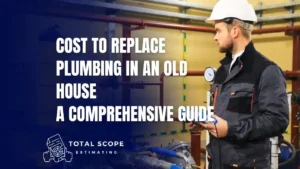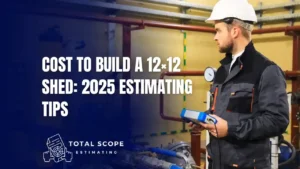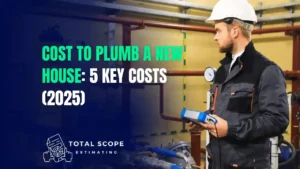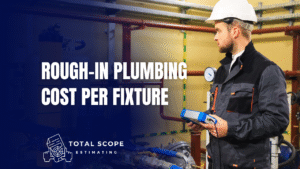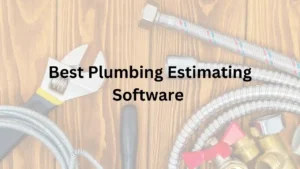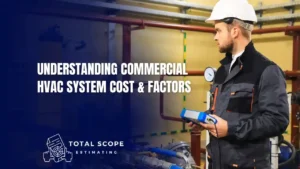The HVAC (Heating, Ventilation, and Air Conditioning) system plays a critical role in keeping your home comfortable year-round. It is essential whether it’s maintaining warmth in winter or cooling in summer. However, like all mechanical systems, HVAC units eventually need replacement. But how do you determine what an HVAC replacement will cost? In this article, we will explore various factors affecting an estimate for HVAC replacement, including size, system type, labor, and energy efficiency.

What is HVAC Replacement?
HVAC (Heating, Ventilation, and Air Conditioning) systems are essential for maintaining a comfortable indoor climate. Over time, these systems wear out, lose efficiency, and may need replacing. HVAC replacement refers to removing an old unit and installing a new one, often upgrading to a more energy-efficient system that provides better comfort and lower utility bills.

Why You Might Need an HVAC Replacement?
Depending on maintenance and usage, HVAC systems generally last 10 to 20 years. Several signs might indicate it’s time for a replacement:
- Age of the System: If your HVAC system is over 15 years old, it’s likely operating at reduced efficiency. You may also experience frequent breakdowns and higher energy bills.
- Rising Energy Bills: Older systems often require more energy to perform the same tasks, causing energy bills to skyrocket. This inefficiency might suggest that a replacement could save you more money in the long run.
- Frequent Repairs: If you call technicians more often for repairs, a complete replacement might be more cost-effective.
- Inconsistent Temperatures: If your home has uneven temperatures in different rooms, it could indicate an aging HVAC system struggling to perform.
With these signs in mind, the next step is understanding the cost of replacing your HVAC unit.
Factors Affecting the Cost of HVAC Replacement
Estimating the cost of HVAC replacement depends on multiple factors. Let’s break down the key contributors:
1. Size and Tonnage of the System
The size of your HVAC system, typically measured in tonnage, significantly affects the overall cost. Larger systems are required for bigger homes, while smaller units are suitable for smaller spaces.
- 1.5 to 2 Tons: These units are ideal for homes under 1,000 square feet. The estimated cost ranges between $3,000 and $5,000.
- 2.5 to 3 Tons: These systems are suitable for homes around 1,500 square feet and might cost $4,000 to $6,500.
- 3.5 to 4 Tons: For homes close to 2,000 square feet, expect to pay $6,000 to $7,500.
- 5 Tons or More: For homes over 2,500 square feet or small commercial spaces, these units range from $7,500 to $10,000 or more.
2. Type of HVAC System
Several different HVAC systems are available on the market, and the system type dramatically affects the replacement cost.
- Central Air Conditioners: The most common type in homes, these systems cost between $3,000 and $7,500 to replace.
- Heat Pumps: These units provide heating and cooling and can cost between $4,000 and $10,000, depending on their size and features.
- Ductless Mini-Split Systems: If your home lacks ductwork, ductless mini-split systems are a good option. They range from $2,000 to $8,000 per zone.
- Geothermal Systems: Known for their high efficiency, geothermal systems are the most expensive, costing between $10,000 and $30,000. However, their energy savings can pay off in the long term.
People who read this post also read this too: What Does an HVAC Estimator Do?
3. Energy Efficiency
Investing in an energy-efficient HVAC system can reduce your long-term energy costs. Systems with a higher SEER (Seasonal Energy Efficiency Ratio) rating cost more upfront but result in lower utility bills over time.
- 14-16 SEER: These units are standard efficiency and offer a balance between upfront cost and energy savings.
- 16-20 SEER: High-efficiency units with improved energy savings will cost more initially but will pay off in reduced energy bills.
- Energy Star Ratings: Systems with an Energy Star certification often provide the best balance between efficiency and performance.
Also Read: How To Estimate New Construction Plumbing Cost in 6 Steps
4. Labor and Installation
Labor costs can vary depending on your location and the complexity of the installation. The national average cost for HVAC labor is between $1,500 and $3,000. Labor costs will increase if your home needs new ductwork or structural modifications.
- Ductwork Installation: If your home lacks ductwork or needs replacement, expect to pay an additional $1,500 to $3,000.
- Electrical Upgrades: Some HVAC systems may require electrical panel upgrades, which can increase the replacement cost by $500 to $2,000.
5. Additional Components
When replacing your HVAC system, other components might need upgrades as well:
- Thermostats: Depending on features, smart thermostats range from $200 to $500.
- Air Purifiers and Humidifiers: These can enhance air quality and comfort, costing an additional $300 to $1,000.
Average Costs by Region
The cost to replace an HVAC system can vary significantly by region. Homes in colder climates may require more robust heating systems, which increases the overall cost. Additionally, labor rates fluctuate depending on local demand and cost of living.
- Northeast and Midwest: These areas, with their harsher winters, often see higher HVAC replacement costs. The typical range is between $5,000 and $10,000.
- South and Southwest: These regions, with warmer climates, may have lower heating demands, keeping replacement costs in the $4,000 to $8,500 range.
- West Coast: California’s stricter energy regulations can drive up costs, with HVAC replacements averaging between $6,000 and $11,000.
We have published another guide, you might like too: Plumbing Estimates 101
How to Get an Accurate HVAC Replacement Estimate
To get a precise estimate for HVAC replacement, follow these steps:
1. Consult Multiple Contractors
Obtain at least three written estimates from licensed HVAC professionals. Ensure that each estimate provides a breakdown of costs, including equipment, labor, and additional fees like permits or disposal.
2. Perform a Load Calculation
A reputable contractor will conduct a load calculation to determine the correct size of the HVAC system for your home. This calculation considers your home’s size, insulation, and airflow needs. Installing the wrong-sized system can lead to inefficiency and higher costs.
3. Review the Warranty
Always ask about the warranty on the new HVAC system. Most manufacturers offer a 10-year warranty on parts, while labor warranties vary by contractor. Choosing a system with a strong warranty can help protect your investment in the long run.
4. Consider Financing Options
Replacing an HVAC system is a significant investment, and many contractors offer financing plans to ease the upfront cost. Look for low-interest financing or rebates from utility companies to lower your total cost.
Long-Term Savings and Benefits
Although replacing an HVAC system can seem expensive upfront, the long-term savings and benefits are worth considering:
- Lower Energy Bills: New systems operate more efficiently, significantly reducing monthly energy costs.
- Improved Comfort: Modern HVAC systems provide better temperature control and airflow, creating a more comfortable living environment.
- Increased Home Value: An updated HVAC system can increase your home’s resale value, making it an attractive feature for potential buyers.
Final Thoughts
Estimating the cost of HVAC replacement can be complex, with several factors affecting the final price. Homeowners can make informed decisions by considering the size, type, energy efficiency, and labor involved. Getting multiple estimates from licensed professionals, performing load calculations, and reviewing warranties are essential to ensure you’re investing wisely.
Understanding the various factors that influence the cost of HVAC replacement, from the size of the system to additional components, will help you get a more accurate estimate. Remember to explore energy efficiency incentives, consider long-term savings from higher-efficiency units, and ensure you hire a licensed contractor for a professional installation.
Though the initial cost may seem high, the long-term benefits, including energy savings and improved comfort, make HVAC replacement a valuable upgrade for any home. By following these guidelines, you’ll be well-equipped to make a decision that keeps your home comfortable for years to come.

